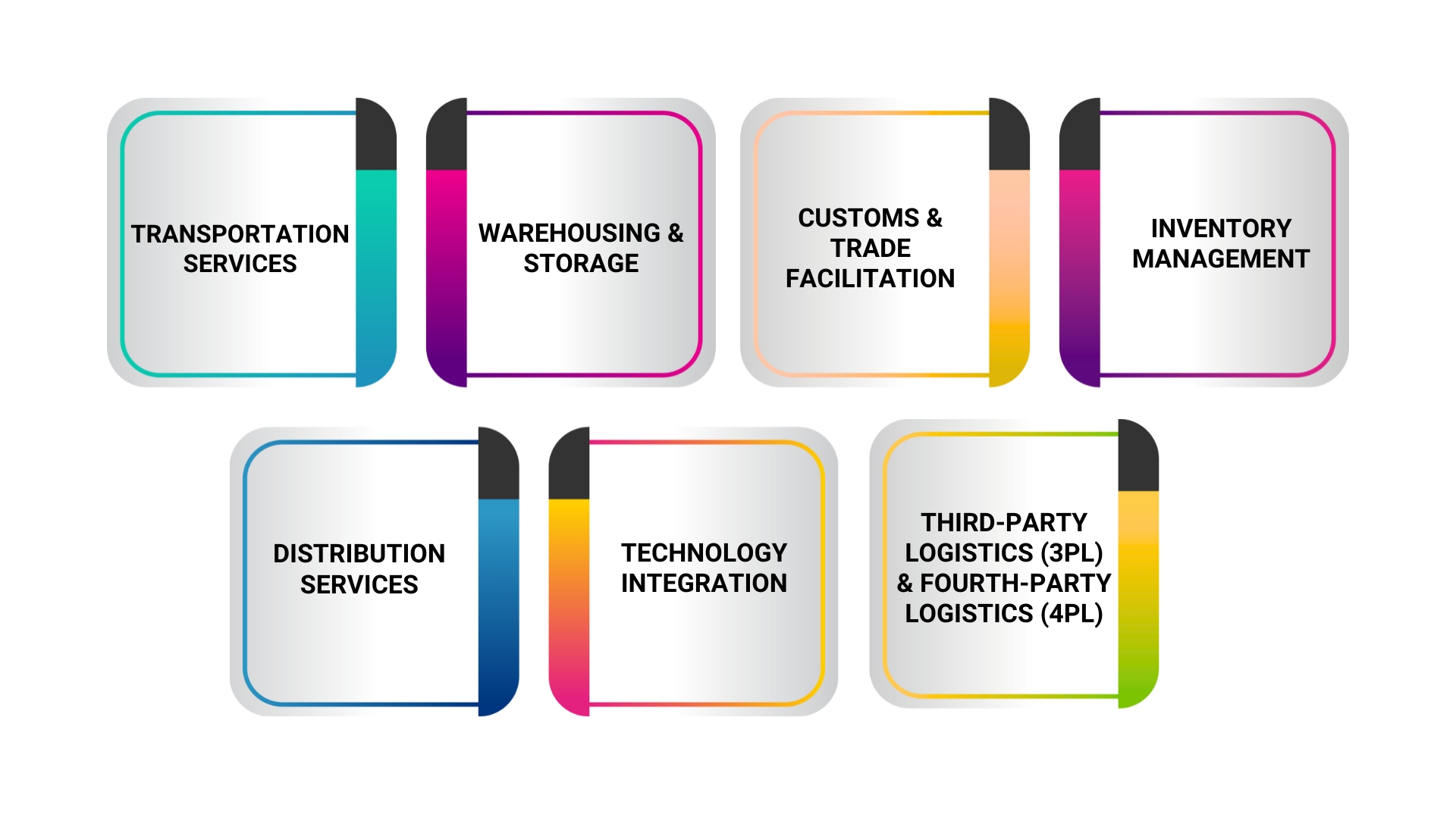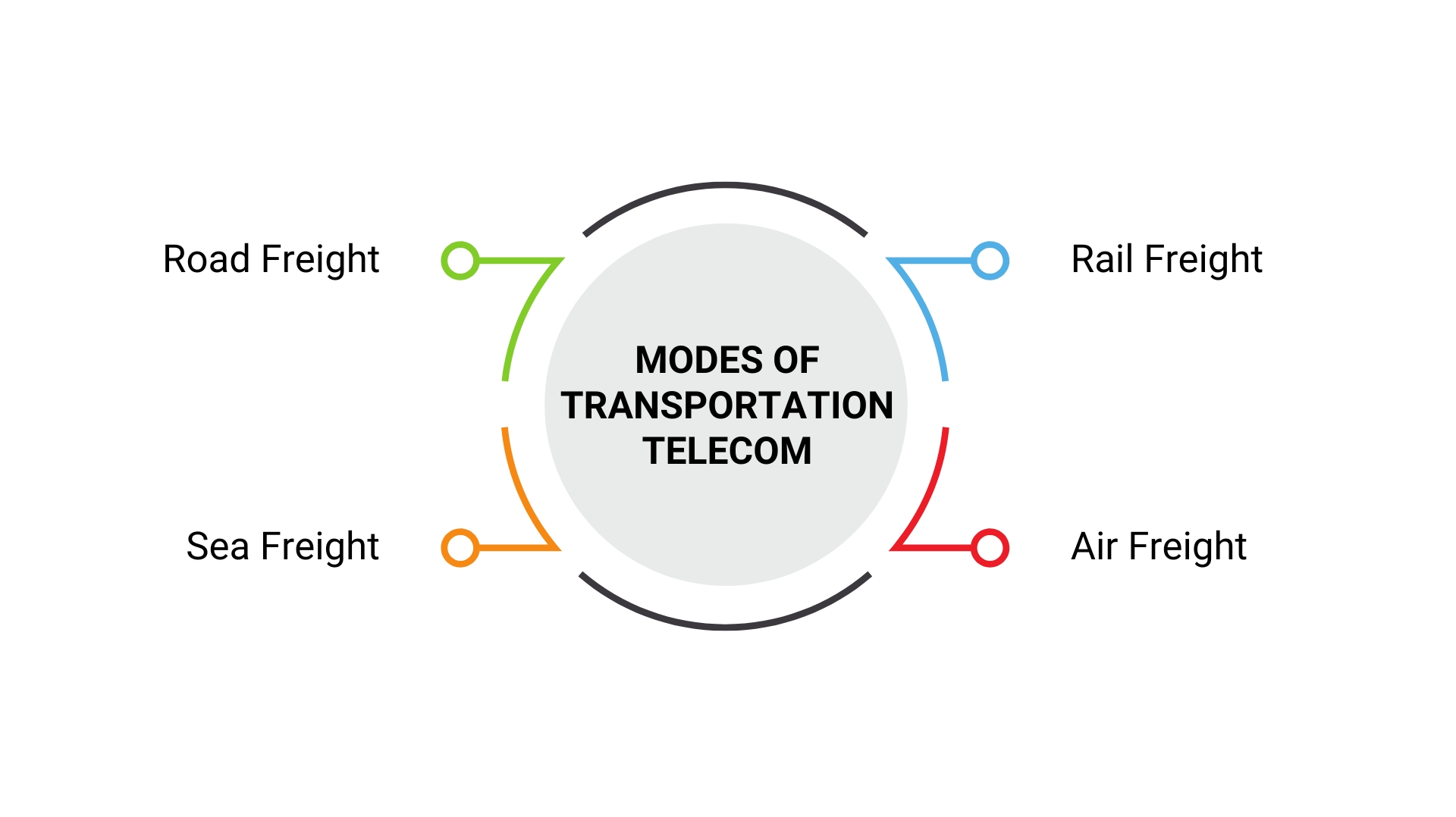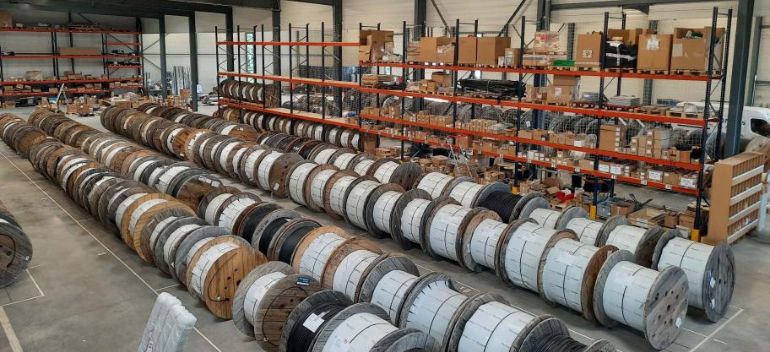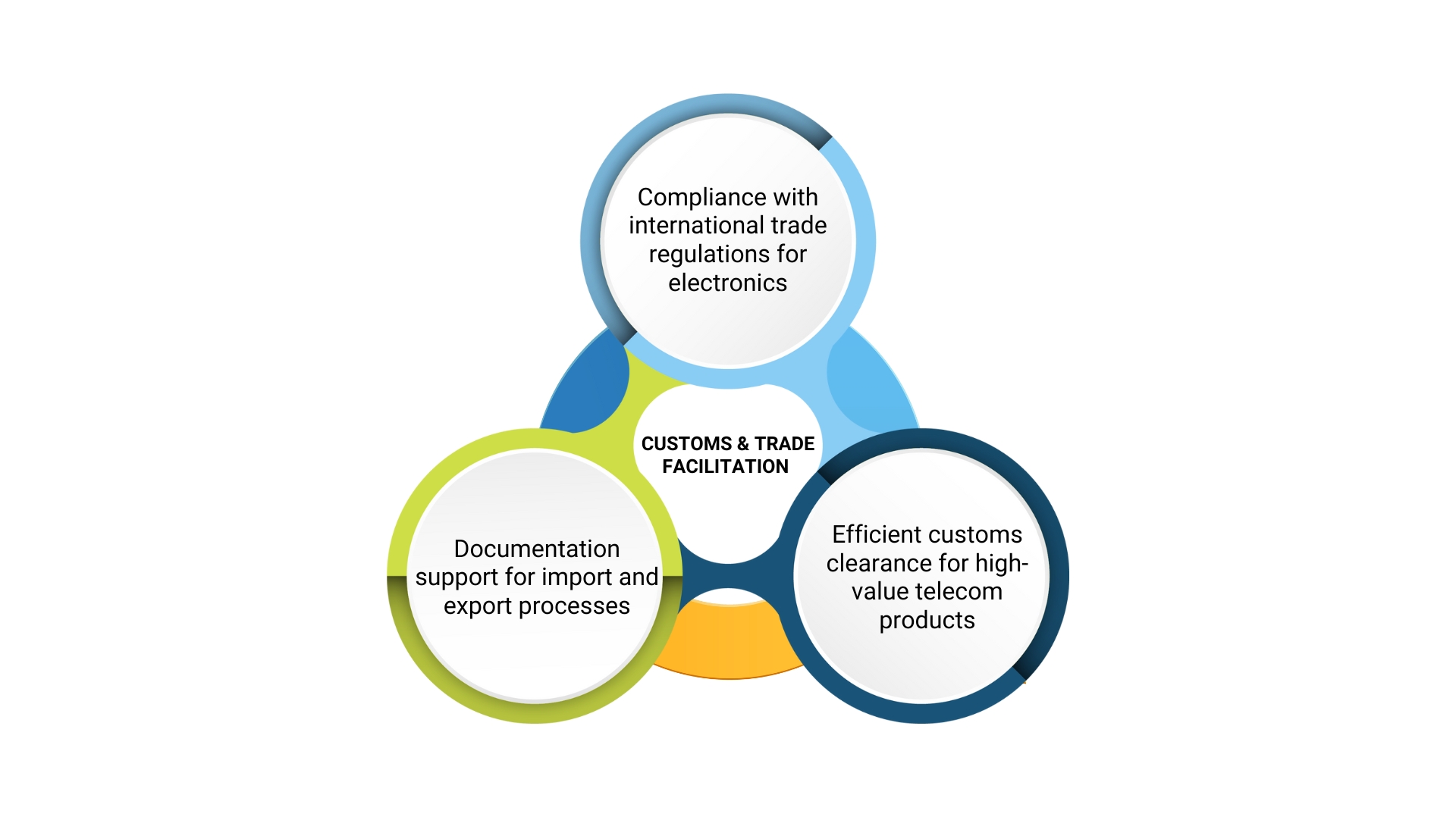In the telecom sector, Abhi Impact Logistics Solutions is a reliable partner that offers complete supply chain solutions that improve cost-effectiveness and operational efficiency.
Our area of expertise is handling intricate logistics for consumer electronics, network components, and telecom equipment. From raw materials to completed devices, our specialized logistics solutions guarantee the smooth transportation, storage, and distribution of telecom equipment.
With a wealth of industry knowledge and a focus on the needs of its clients, Abhi Impact Logistics Solutions provides dependable and customized logistics solutions to help the telecom industry flourish.
Overview of Logistics Services for the Telecom Industry
Effective logistics are essential to the engineering sector for sustaining output, fulfilling project deadlines, and guaranteeing the seamless movement of supplies and machinery.
We at Abhi Impact Logistics Solutions are aware of the particular requirements of engineering projects and offer tailored logistics solutions to satisfy them.
Transportation Services
Moving completed devices, network components, and raw materials between different telecom supply chain stages requires efficient transportation.
Modes of Transportation
- Road Freight: Ideal for domestic
transport of network components and consumer electronics.
- Sea Freight: Suitable for
international shipments of telecom equipment and bulk electronics.
- Rail Freight: Cost-effective for
heavy telecom equipment over long distances.
- Air Freight: Used for high-value or
time-sensitive shipments like smartphones and electronic components.
Specialized Transport Needs
Secure transportation for high-value electronic devices
Customized packaging for delicate telecom equipment.
In the telecom supply chain, storage solutions are crucial for network components, final goods, and raw materials.
Warehousing and Storage
Types of Warehousing
non-perishable electronic goods in general-purpose warehouses.
Facilities for the safe storage of expensive telecom components and equipment.
Value added Services
-
Electronic component testing and quality control.
-
Network equipment kitting and assembly services.
-
Customization of labels and packaging to maintain brand coherence.
Customs and Trade Facilitation
Due to the worldwide scope of the telecom supply chain, trade facilitation and customs clearance are essential.
Key Services
Inventory Management
Effective inventory control lowers expenses and guarantees telecom products are available on schedule.
Services Offered
-
Use RFID and IoT to track inventory in real time.
-
Demand forecasting and replenishment planning for electronics.
-
Just-In-Time (JIT) inventory for high-value components.
Distribution Services
Distribution services ensure that telecom products reach consumers and businesses quickly and efficiently.
Key Offerings
-
Solutions for consumer electronics last-mile delivery.
-
Consolidation and deconsolidation of shipments for network equipment.
-
Reverse logistics for electronic device recycling, repairs, and returns.
Technology Integration
Logistics services powered by technology improve cost-effectiveness, efficiency, and transparency.
Technology Solutions
-
GPS-assisted tracking for valuable cargo.
-
Blockchain for traceability and compliance in the supply chain.
-
AI-driven systems for demand forecasting and route optimization.
-
EDI (Electronic Data Interchange) for seamless communication between stakeholders.
Third-Party Logistics (3PL) and Fourth-Party Logistics (4PL)
Telecom firms can concentrate on their main business by outsourcing logistics to specialized service providers
3Pl Services
-
Warehousing, transportation, and distribution.
-
Freight forwarding and customs brokerage for global shipments.
4Pl Services
Key Challenges Addressed by Abhi Impact for Telecom Companies
-
Rapid Technological Advancements: Managing frequent product updates and short product lifecycles.
-
High-Value Inventory Management: Ensuring security and traceability of expensive electronics.
-
Global Supply Chain Complexity: Managing cross-border trade and multiple supplier networks.
-
Cost Efficiency: Reducing transportation and warehousing costs while maintaining high service levels.





